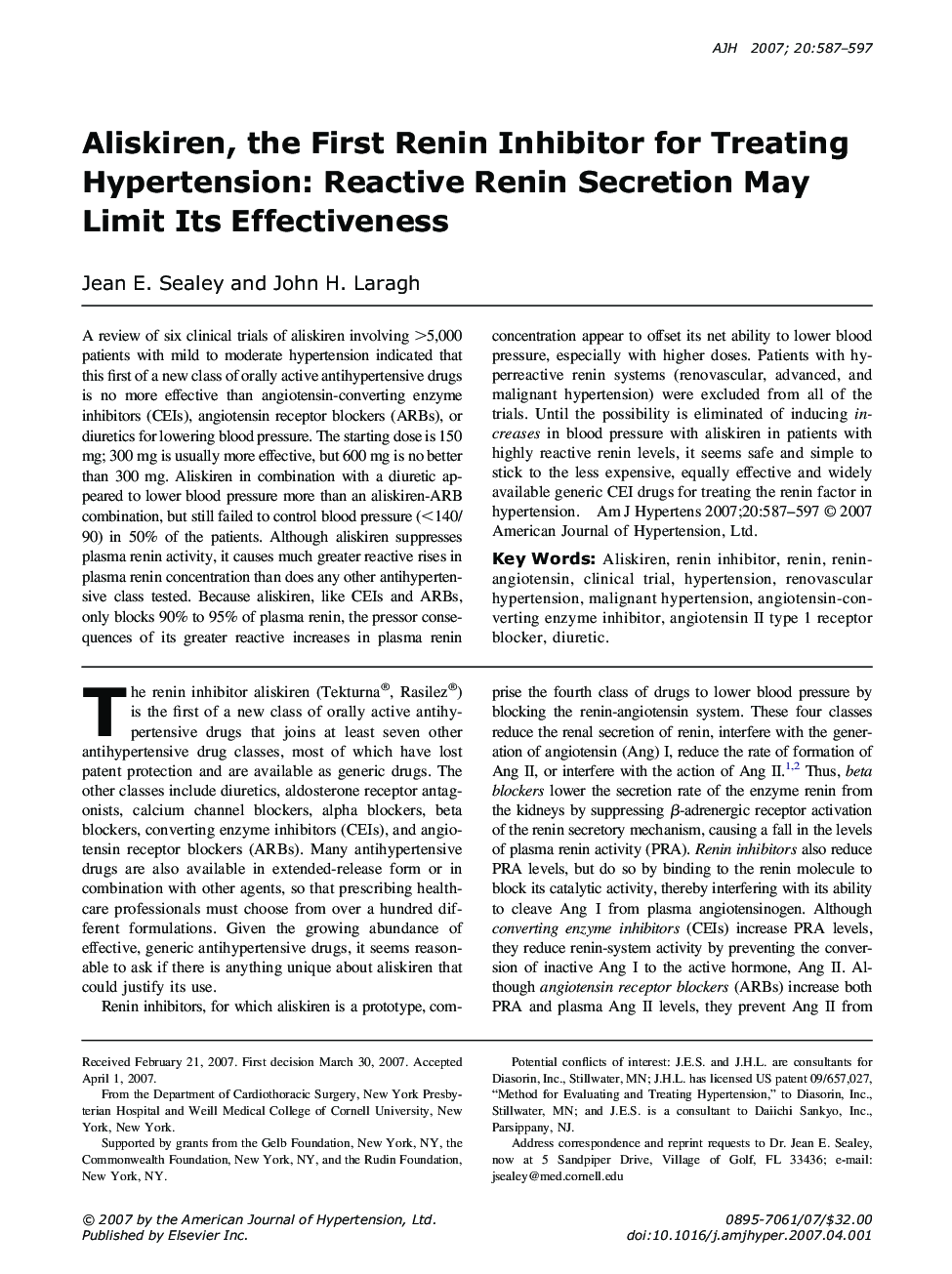| Article ID | Journal | Published Year | Pages | File Type |
|---|---|---|---|---|
| 2862619 | American Journal of Hypertension | 2007 | 11 Pages |
Abstract
A review of six clinical trials of aliskiren involving >5,000 patients with mild to moderate hypertension indicated that this first of a new class of orally active antihypertensive drugs is no more effective than angiotensin-converting enzyme inhibitors (CEIs), angiotensin receptor blockers (ARBs), or diuretics for lowering blood pressure. The starting dose is 150 mg; 300 mg is usually more effective, but 600 mg is no better than 300 mg. Aliskiren in combination with a diuretic appeared to lower blood pressure more than an aliskiren-ARB combination, but still failed to control blood pressure (<140/90) in 50% of the patients. Although aliskiren suppresses plasma renin activity, it causes much greater reactive rises in plasma renin concentration than does any other antihypertensive class tested. Because aliskiren, like CEIs and ARBs, only blocks 90% to 95% of plasma renin, the pressor consequences of its greater reactive increases in plasma renin concentration appear to offset its net ability to lower blood pressure, especially with higher doses. Patients with hyperreactive renin systems (renovascular, advanced, and malignant hypertension) were excluded from all of the trials. Until the possibility is eliminated of inducing increases in blood pressure with aliskiren in patients with highly reactive renin levels, it seems safe and simple to stick to the less expensive, equally effective and widely available generic CEI drugs for treating the renin factor in hypertension.
Keywords
Related Topics
Health Sciences
Medicine and Dentistry
Cardiology and Cardiovascular Medicine
Authors
Jean E. Sealey, John H. Laragh,
